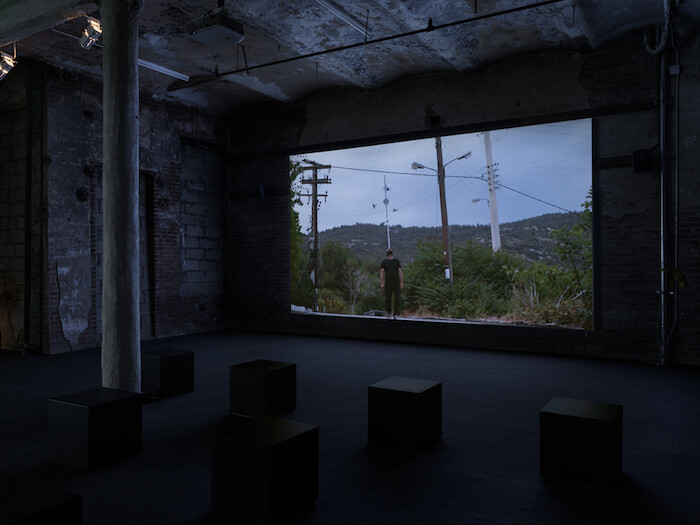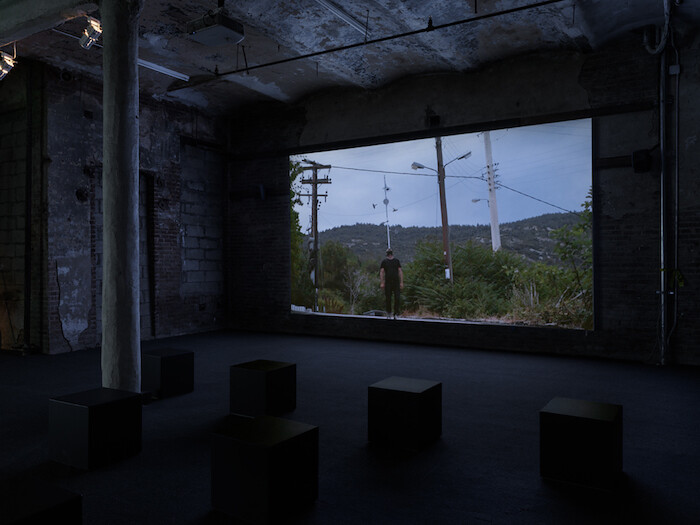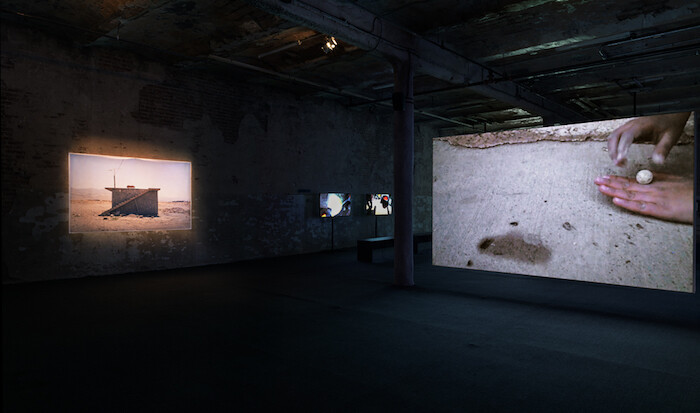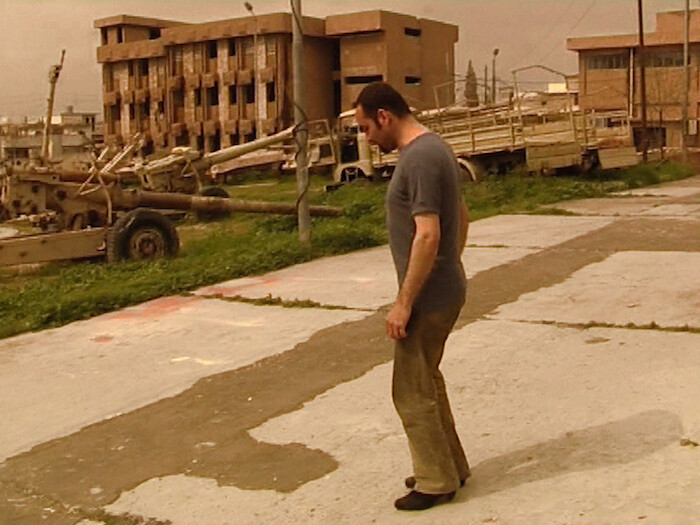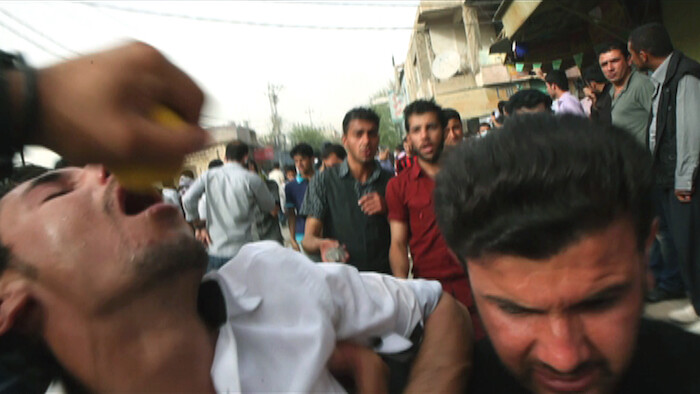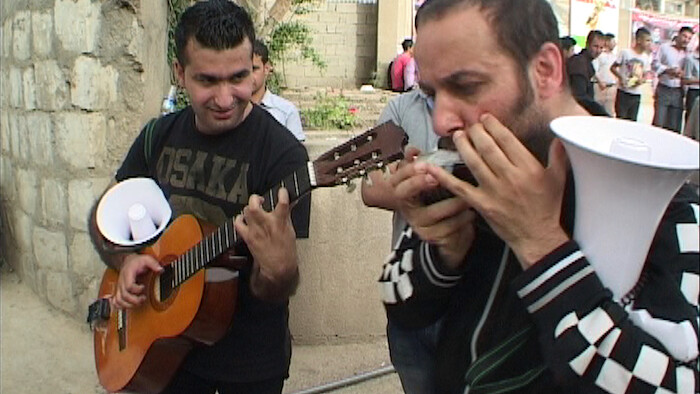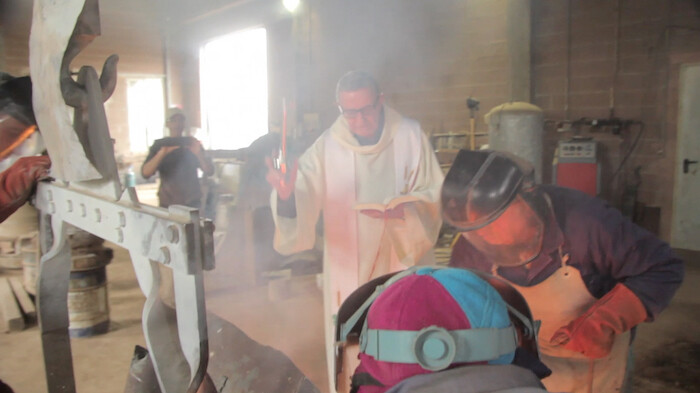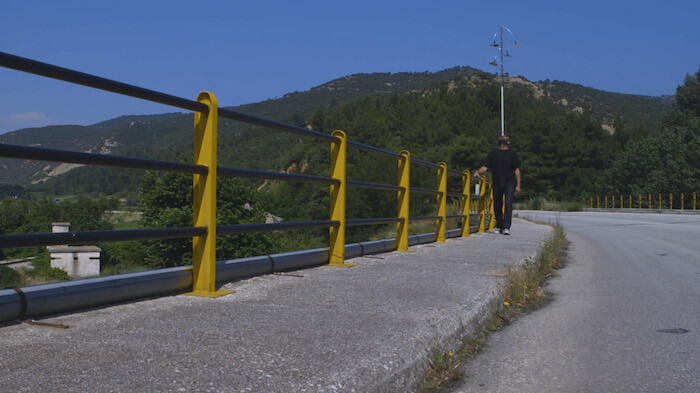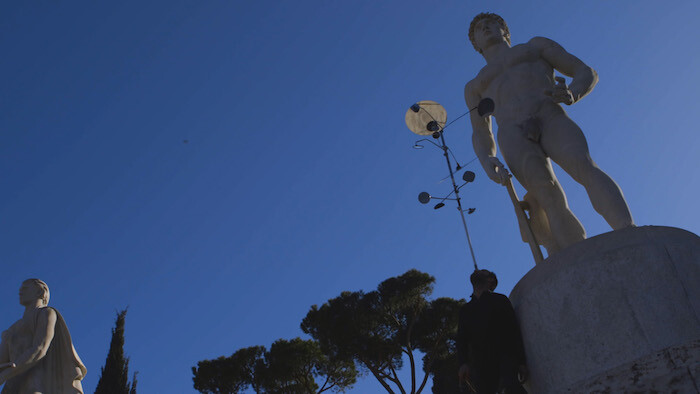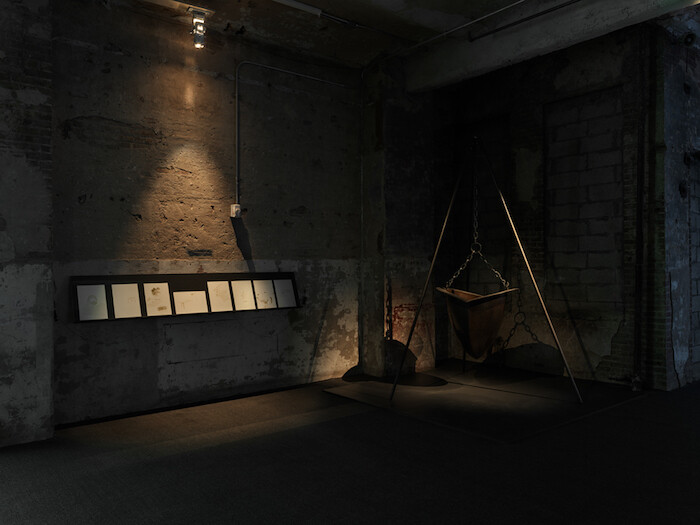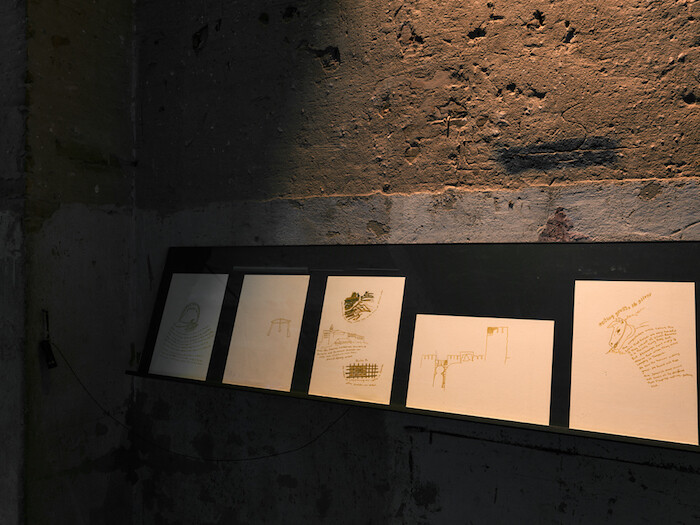Hiwa K doesn’t believe that art can change anything.
Following a screening of his videos at the Film Society of Lincoln Center, the Iraqi-Kurdish artist explained his frustration with the uselessness of the whole contemporary art enterprise in the face of profound global violence. To hear him say that he doesn’t believe art can offer anything in terms of repair felt startling, at odds with the political nature of the works we had just seen.
But it also felt breathtakingly familiar. I worked at an art space in downtown Cairo in the years following Egypt’s 2011 revolution. As I was mounting exhibitions in the center of clouds of tear gas and violent clashes, against a backdrop of forced disappearances and mass killings, I was constantly, brutally, forced to ask myself why we were doing what we were doing. There was an incredible sense of urgency to persist, but at the same time, the crushing knowledge that it was largely pointless, that art wasn’t going to get anyone out of jail, for example. Hiwa K left the context of crisis out of necessity, I left out of choice; we both settled in the so-called Western world, where we watch those traumas continue to unfold from a distance, all too aware of the privilege of leaving, all too aware of feeling complicit in the global machine of violence. I never attended a talk where an artist was so honest about not knowing why he was still making art, how powerless he felt. I was relieved to hear someone else affirm my confusion about the value of this line of work.
I went to Hiwa K’s talk before visiting his exhibition, “Blind as the Mother Tongue,” at the New Museum. My thoughts were still steeped in his words, and so I was surprised that, at first glance, his disavowal of art’s potential to act didn’t seem to make sense: everything appeared to be about making, about striving to create in the midst of difficult conditions. This disconnect might also have been occasioned by the fact that the install isn’t ideal for quiet contemplation—five videos are all crammed into a single darkened room, one flickering screen constantly distracting from another glowing projection; a spectacle of moving image that drowns out the other components of the exhibition: a photograph, a sculpture, and a suite of eight drawings.
The exhibition begins with a projection of For a Few Socks of Marbles (2012), in which some boys strenuously chip away at hunks of rock with an enormous nail to craft almost-perfect little spheres—the hard and serious work of play. To its left is the photograph One Room Apartment (2008), which documents an improvised dwelling in Iraqi Kurdistan: a concrete platform in a seemingly deserted landscape with a perilously supported staircase zig-zagging up the side, leading to an unsheltered bed on top—a novel vernacular architectural form born of necessity. Deeper in the room, there’s another projection, Moon Calendar, Iraq (2007), a roughly shot 12-minute documentation of the artist breathlessly rehearsing a flamenco dance choreographed to the sound of his own heartbeat. Subtitles tell how he wanted to perform the dance in a notorious Iraqi jail complex where political dissidents were tortured under Saddam Hussein’s regime.
But take a second look, and the sense of industry that initially seemed to be the show’s conceptual linchpin begins to crumble. The boys gamble those belabored marbles away, the dance is never performed. In a video diptych shown on a pair of monitors (The Bell Project, 2011–15), laborers build a giant church bell knowing that it will never be functional. It becomes clear that all this work doesn’t work—what rises, instead, is a growing sense of futility.
This feeling of fervent struggle receding into pointlessness reaches a heart-wrenching apex in This Lemon Tastes of Apple, a video from 2011. Here Hiwa K appears again, playing a harmonica into a megaphone, walking alongside another man strumming a haunting refrain on the guitar. They’re in the middle of a chaotic, confusing, violent protest (accompanying text tells what the video doesn’t: they’re in the midst of an attempted uprising in Sulaymaniyah, the artist’s hometown in northern Iraq). Tear gas is fired—the protesters pause to share halved lemons to rinse their mucus membranes, then the musicians begin playing again. The crowd suddenly starts and runs back—the military forces beyond the video’s horizon can’t be seen, it’s unclear if it’s mass panic or if shots are being fired. Dazed, bleeding young men are intermittently carried back from the front lines. It’s a taxing video to watch. I wanted the musicians to stop—the act seemed so senseless, too dangerous, almost a mockery of the brutality around them. But the artist seems driven by something inexorable, the way he was rehearsing the dance he would never perform.
Some sort of clue might be found in the centerpiece of the exhibition, Pre-Image (Blind as the Mother Tongue) (2017). It’s the most intentional piece in the show, beautifully shot and written, a complex meditation on migration, language, absence, and the burden of art history. Almost the entire video centers on the artist balancing a metal rod fitted with mirrors on his nose, trembling his way forward on unsteady feet through various terrains, navigating only by the imperfect reflections he can see bouncing from this strange tree-like structure. The act is purposeless, it is aggravated effort for nothing: a revelation of the emptiness at the heart of art-making and its attendant economies, and the anxious hopelessness of not knowing what to do when anything you can do is just a gesture. But he still trembles forward, anyway.
At his talk, Hiwa K couldn’t tell the audience what they’re supposed to do. He just kept reminding people to breathe. It is profoundly moving to have someone acknowledge such anxious hopelessness, which I so often wrestle with, instead of trying to convince everyone to feel otherwise.
